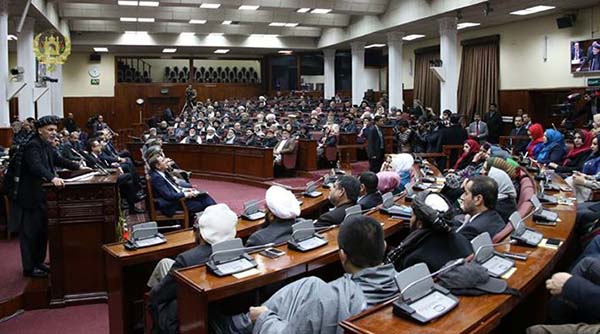KABUL ( MEDIA REPORT )
One might presume that the deposition of the tax might come as a relief to the many telecom users. On the contrary, Afghans unsatisfied with the parliaments decision took to social media platforms.
Last month, Afghanistan’s telecom companies imposed a 10% tax on Afghan networks users. Although it was never clarified, the tax was seen as an effort by the government to attain self-reliance. Other unconfirmed reports stated that the amount collected from the tax was meant to boost the defence treasury. Considering the degree of mobile phone penetration in Afghanistan, over 23 million subscribers, this definitely seemed like a sound financial move on behalf of the government. And within two weeks of its imposition, more than 160 million Afghanis ( in dollars ) were reportedly collected. However, on Wednesday, the upper house of the Afghan parliament—Wolesi Jirga—rejected the presidential decree allowing this tax. Afghan MPs voted down the decree stating that it was unconstitutional, and that there were financial limitations to decrees passed by the president.
One might presume that the deposition of the tax might come as a relief to the many telecom users. On the contrary, Afghans unsatisfied with the parliaments decision took to social media platforms with the hashtag #IWantToPayTax!
Omid Haqbin, social media expert and tech enthusiast, was among those who voiced their opinions against the parliament’s decision. “We can’t survive on foreign aid forever. And we can’t hold international aid agencies accountable for how spend the money meant for Afghanistan’s development,” he elaborated. “But if do our part and pay the taxes, we can question our government on how it was spent—-that is democracy,” Omid explained.
There were, of course, some dissenting voices, and the hashtag channelled active debates among stakeholders involved.
Social media: A platform for debate and solidarity
While the message itself resonates strongly with most Afghans, it is the medium they employed that speaks volumes about the growth of technology and communication in the new democracy.
Over the last decade and half, Afghanistan has seen increased investment in telecommunication infrastructures. According to the Afghan Ministry of Communications and Information Technology (MCIT), the telecommunications networks cover almost 90% of the population as of 2015.
There are five mobile operators competing in Afghanistan’s telecom sector and between them they claim nearly 24 million subscribers, with an overall mobile penetration of 75%. The MCIT report also states that as of mid-2015 there are around two million 3G mobile broadband subscribers in the country.
These are impressive numbers, but it is the remarkable use of the technology by the common Afghan that needs to be noted. Social media, more specifically, has played an important role in influencing social movements in the country
As Omid pointed out, social media has been catalyst in bringing people from across ethnicities together in a country that faces a lot of internal conflicts. “I was surprised and pleased to see that all Afghans – Pashtuns, Hazaras, Tajiks and other—came together today to support the campaign to pay taxes. It was good to see the unity,” he shared.
Ben Bruges agreed with Omid. “Social media is now a permanent fixture of life in Afghanistan and is increasingly spreading out beyond the cities,” he said. Ben is the program director at Impassion Afghanistan, one of the first digital media agencies in the country. “The connectedness of Facebook and the speed of Twitter fit into a culture and are used in specific ways by that culture to build needed social cohesion and keep abreast of a rapidly changing political and security situation,” he added.
And this fact wasn’t more evident than during the presidential elections. Afghans used social media to watch over the extremely turbulent political process last year. “Apart from the elections, the tragic Farkhunda case demonstrate clearly that social media is now the primary channel through which young Afghanistan talks to itself,” Ben elaborated, referring to the brutal murder of a young lady named Farkhunda in Kabul, who was beaten to death by angry mob over false accusation of burning the Koran.
Videos of her mob lynching spread across social media and were also used by security officials to identify the perpetrators who killed her.
As Afghans struggle to bring semblance of democracy into their government, they find a trusted ally in social media platforms. And it comes as no surprise that they would be willing to pay the 10% fee in exchange for services that helps bring democracy online.

